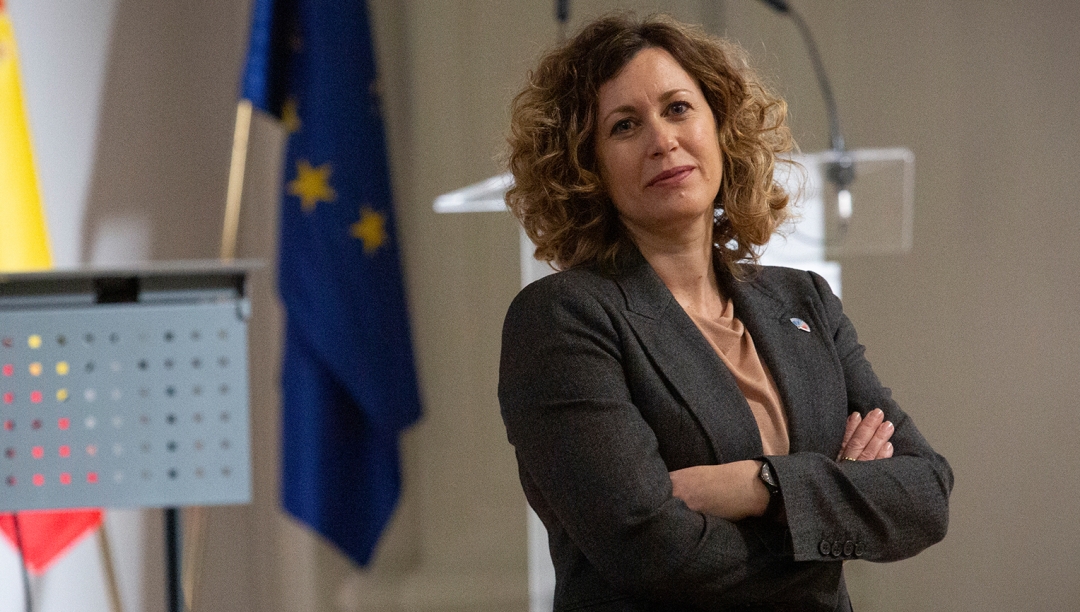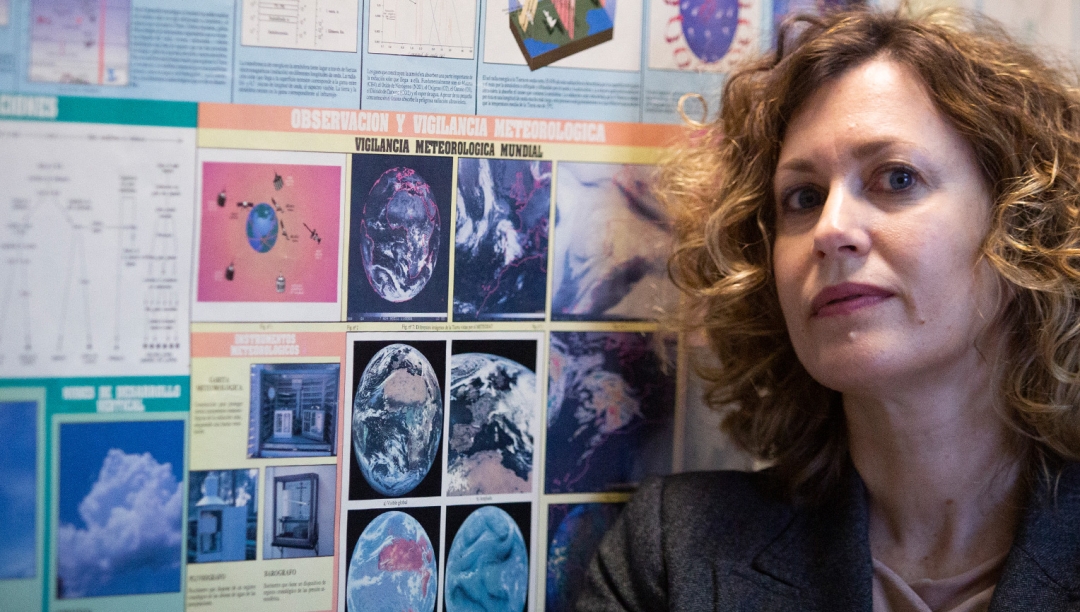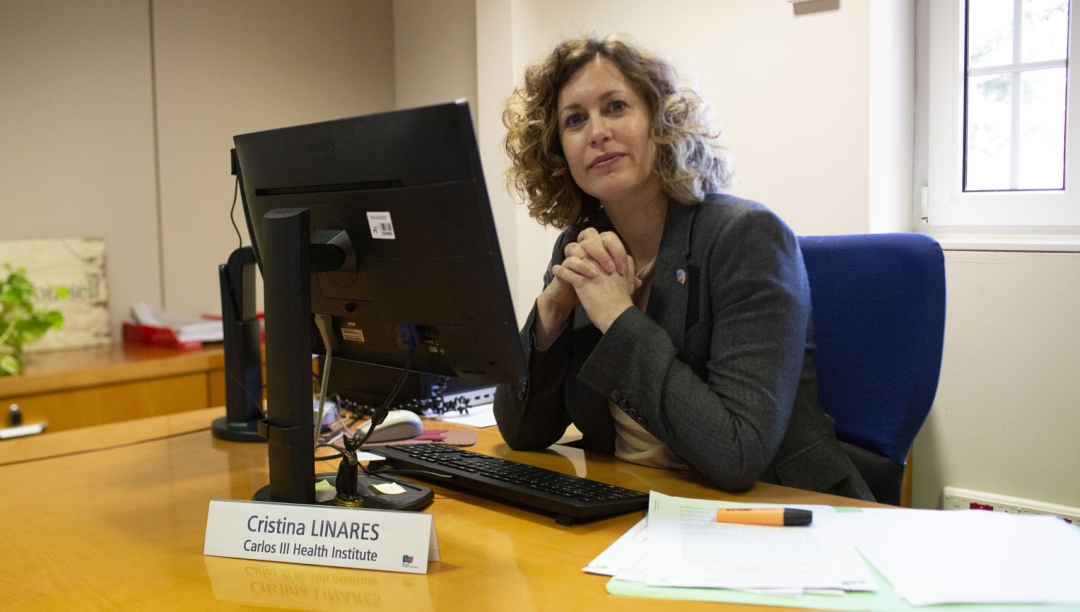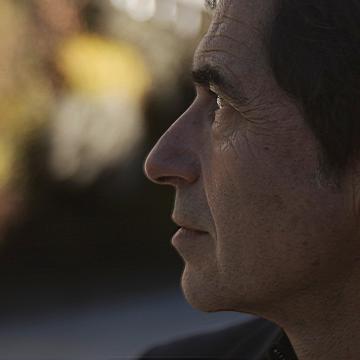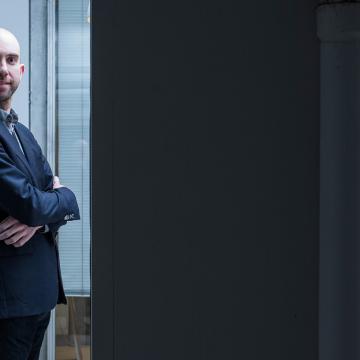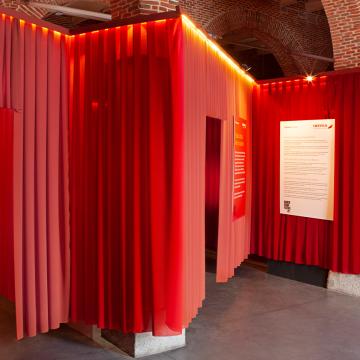Since opening on the 17th of April, Espacio Iberia has welcomed dozens of guests with one thing in common: their infinite talent. Talent that has inspired all the people who have sat there to listen to them.
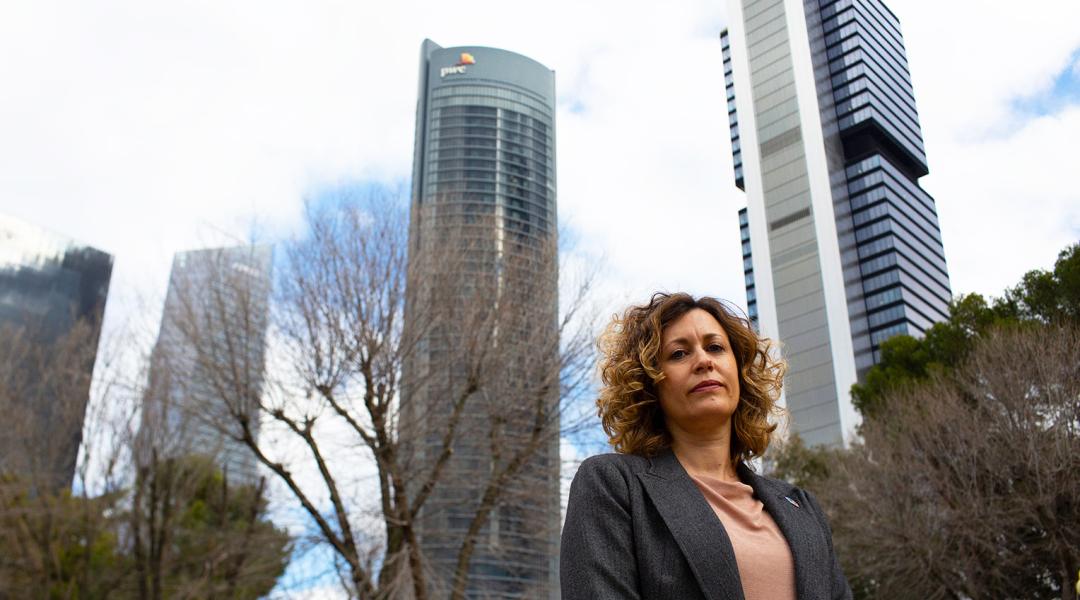
Never have we needed science more than now, and the COVID-19 pandemic reminds us of this daily. But it’s not a matter of only turning to science when we see the writing on the wall. Cristina Linares has spent years researching and warning about the frightening consequences of climate change, which go far beyond the degradation of the environment and already affect the health of millions of people.
She assures us that she sometimes feels like Cassandra in Greek mythology, who could predict true prophecies, but was never believed. Cristina Linares (Madrid, 1977), chief scientist at the Department of Epidemiology and Biostatistics at the National School of Public Health of the Carlos III Health Institute, has been warning about the impact of climate change on the health of the population, from respiratory to cardiovascular diseases, for years, but she’s not giving up. With perseverance and determination, she has managed to carve out a career for herself in Spain, which is not at all easy, given the tempting offers she has received from abroad. Creating a Climate Change and Health Observatory is among her future goals.
When did you decide that science was your thing?
At school, I was always really interested in everything that affects human beings, specifically diseases and how to fight them to improve health. In fact, my first choice was always medicine, but I was passionate about nature. In the end, I decided to study biology, encouraged largely by a secondary school teacher. At university, I realised that my steps were leading me towards research and, in particular, how the degradation of the environment harms people’s health. And that’s where everything related to climate change comes in.
Climate change and health, a correlation that isn’t spoken about much.
Research into climate change and its effects on the environment has been ongoing for many years. The next step involved researching how humans’ alteration of the natural environment affects their own health. Today we know how certain extreme weather phenomena associated with climate change (heatwaves, droughts, or flooding, etc.) affect health, even mental health.
“The key lies in preparing our society to take more sustainable decisions every day”
Is it too late to do something to reverse the situation?
All is not lost yet. The sooner we act on the causes, the sooner we will see how the consequences will become less frequent and intense. The key lies in adapting and mitigating climate change, in preparing our society to take more sustainable decisions every day, to thus inspire change among politicians. It must be a global change, because it’s no use that some take these decisions while others don’t, that’s why this issue is so difficult to solve.
Going back to you personally, what sacrifices and satisfactions does your job involve?
It’s a job that requires daily perseverance and determination. As things are, you have to keep believing that it’s worth working on climate change and disseminating the studies we run. In the end, it’s individual work, but it also involves teamwork with your research team. It’s slow work and sometimes you feel like Cassandra from the Greek myth, who could predict true prophecies, but was never believed. Even within public health, working on the environment is odd because it’s a nonrecurring field.
Have you ever felt like giving up?
Working within the field of science in Spain isn’t easy. This means that many people lose faith and give up along the way. Indeed, there are many moments where you feel like giving up and become discouraged because it’s hard to find stability. Within the science and research world, you start out with inadequate funding, that is, there are many grants to train as a researcher, but few that allow you to find job security. Also, competition is fierce, so it’s important to persevere, as well as having a bit of luck.
“Sometimes I feel like Cassandra from the Greek myth, who could predict the future, but was never believed”
Despite all this, Spanish researchers are highly regarded internationally. Have you received job offers abroad?
Yes, you’re offered the chance to go abroad, continue learning and expand your career overseas. Sometimes you have to take everything into account and, depending on your situation, it might be worth it or not. A lot of Spanish talent is recruited abroad because people are well trained and extremely motivated; at the end of the day, this is a vocational profession, you work in this field because you believe it’ll help others.
Since you decided to stay, what are your goals here?
I would like there to be a Climate Change and Health Observatory in Spain. This kind of observatory has been created at a European level, and I would like to see it replicated in Spain. It’s important to start working on the topics of health and environment from a cross-sectional perspective and creating this centre would give us a foothold at an international level and would allow us to better prepare for the challenges of climate change. The pandemic has taught us that we must be prepared for emerging risks, and the risks of climate change are no longer a surprise, we know what’ll happen. This is my goal, as well as continuing to research underdeveloped topics, such as the connection between climate change and mental health, or between air pollution and degenerative or endocrine diseases, to establish prevention and response plans at a local level.
Does science receive the recognition it deserves?
Sometimes we’re required to give immediate answers when the scientific method itself takes time, but during times like the ones we’ve experienced, all answers come from science. If we learn one thing from the pandemic, it should be that we need science: science is what’ll pull humanity out of the predicaments it’ll have to face. This is the message we must send to younger generations who are still learning, they need to know that they can contribute to the fight against disease and inequality. Everything is so focused on the economic development model that we often forget the extent to which we need science.
